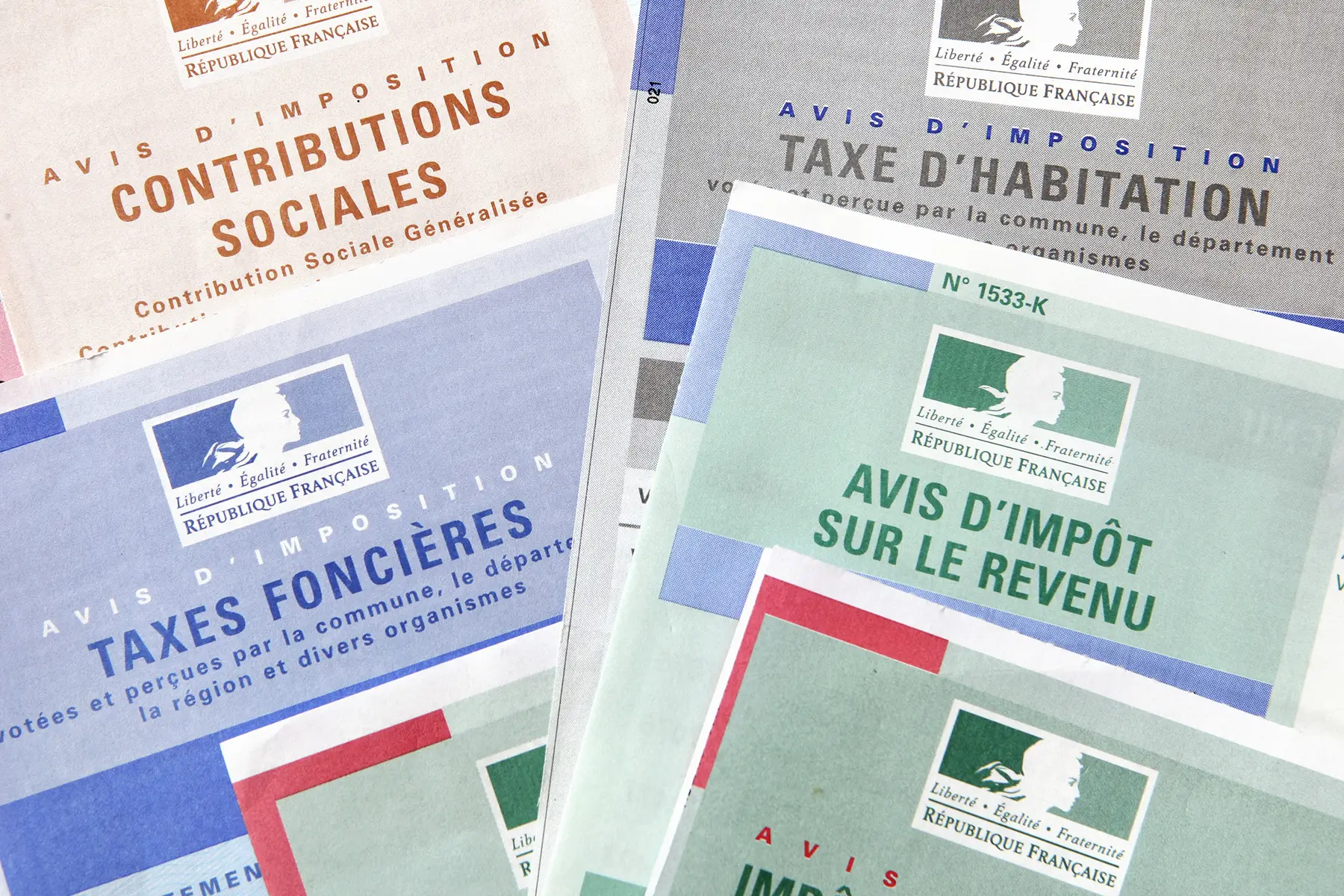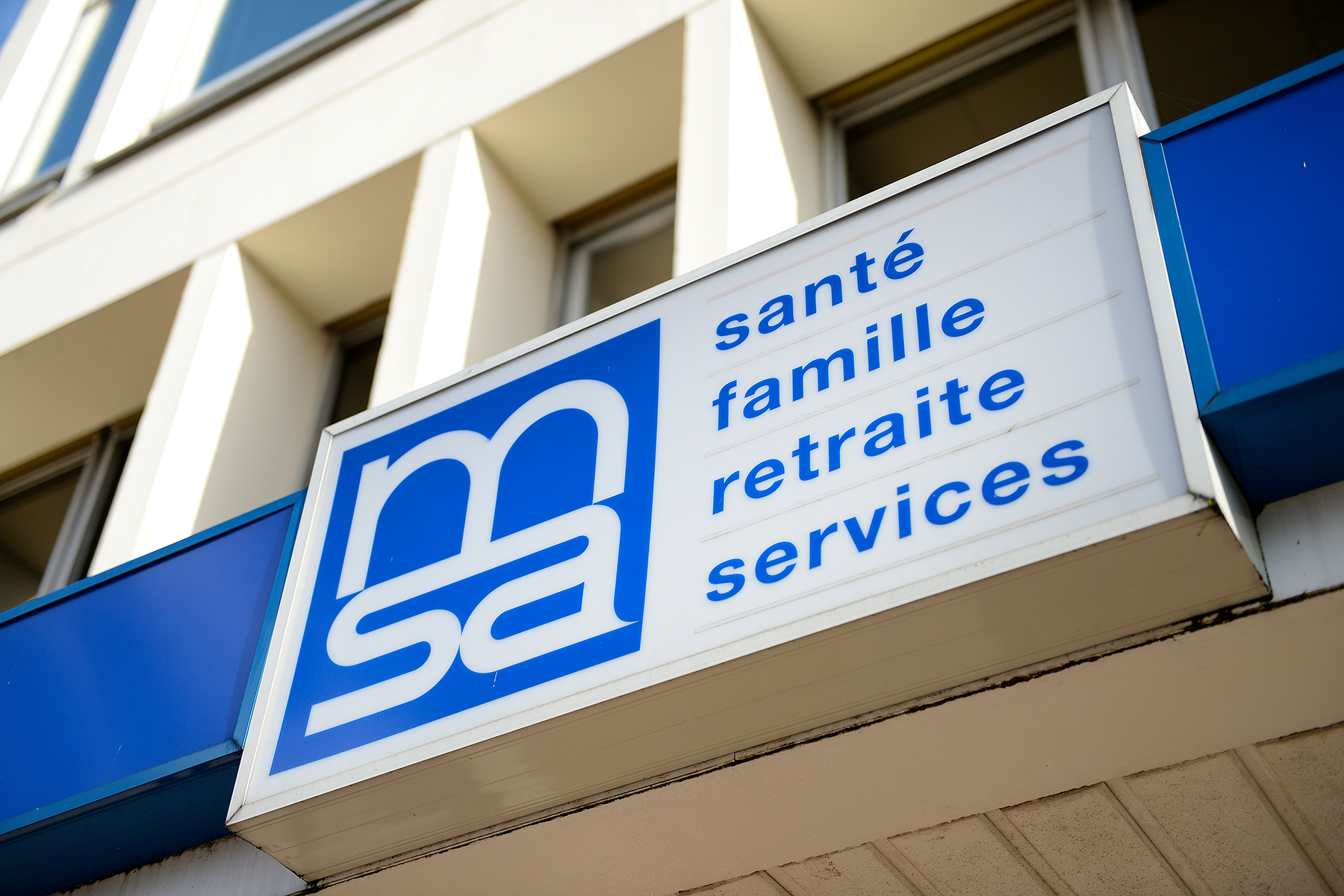Is it time to take the leap and strike out on your own? Whether you’re already sure you want to switch to the self-employed life or are already your own boss but want to move to France, there is a lot to consider before starting a business as an expat.
Along with the ins and outs of immigration, you also need to understand how to pay taxes in France as a freelancer, not to mention what it all means in terms of health insurance or social security. Here’s everything you need to know to help you decide if you should freelance in France:
- Starting a business vs becoming a freelancer in France
- Who can freelance in France?
- How to freelance in France as an expat
- Administration in France for freelancing
- French banking for freelancers
- Taxation for freelancers in France
- Social security, health insurance and pensions for French freelancers
- Earning a secondary income by freelancing in France
- Finding office space in France for freelancing
- Finding freelance work in France
- Support, advice, and training for French freelancers
- Useful resources
Companow
If you’re setting up a company in France, contact Companow. This one-stop shop handles all aspects of French company registration, banking, accountancy, visas, trademarks, plus an extensive range of concierge services. Choose the options to suit your business registration needs and leave the rest to the experts at Companow.
Starting a business vs becoming a freelancer in France
According to the National Institute of Economic Statistics and Studies (l’Insee), France had around 3 million self-employed people in 2019. In 2021, nearly 13% of the workforce was self-employed – the share was higher for men (15.6%) than women (9.5%).
Whether you set up a business with employees or work as a sole trader depends on your company and situation. There are many advantages to becoming a freelancer by registering as a micro-entrepreneur or auto-entrepreneur in France. These include simplified tax and accounting requirements, a VAT exemption, and reduced social charges. Freelancers are also covered by the state’s universal healthcare coverage and social security. They also have the right to paid sick and parental leave.

Working as an auto-entrepreneur is increasingly popular and common in France, but it isn’t for everyone. For example, if you earn more than €72,600 per year for the services you offer or over €176,200 from the sale of goods, you’ll need to set your business up as a company (société).
It’s also worth mentioning that freelancers don’t benefit from France’s generous five weeks of paid vacation. Also, business expenses aren’t tax deductible for micro-entrepreneurs in France.
Who can freelance in France?
With the proper immigration papers, anyone over 18 can become a freelancer in France.
European Union (EU) nationals don’t need a specific residency permit or titre de séjour to create a micro-entreprise. However, aspiring freelancers from outside the EU do need a titre de séjour that allows them to carry out non-salaried activity in France. This includes private life permits (titre de séjour vie privée et familiale) and long-term residency cards (carte de résident). You’ll also need to register your business address in France (adresse de domiciliation).

If you don’t yet live in France or have the right to one of these visas, you’ll need to get a special visa to live and work as a freelancer.
Bear in mind that some visas do not allow you to become self-employed. For example, you cannot register as a freelancer in France if you’re on an employee or temporary work visa (titre de séjour salarié/travailleur temporaire). A student visa (visa étudiant) also prohibits you from working as a freelancer. If you want to freelance, you’ll need to change your permit or wait until the end of your studies.
Many useful services provide advice on the necessary French visas, business processes, and tax matters in English. Firms offering these include Fab Expat.
How to freelance in France as an expat
If you’re an EU national or already have a residency permit that allows you to work in a non-salaried position, it’s easy to become a freelancer in France. It’s free to register as self-employed, too.
How to obtain a work visa
If you don’t yet live in France or are in the country on a salaried worker or student visa, you will need to request a residence card for freelancers (carte de séjour entrepreneur/profession libérale). This temporary visa allows you to create your freelance business and work in France for more than three months.

There are different requirements depending on whether you’ve already been working as a freelancer or if you’re starting out. You might need to provide proof of your business’s profitability over the past three years or a five-year plan for getting your freelance business off the ground.
You can learn more about the requirements for a freelance visa in France on the official government website.
Legal structures
There are a few different ways to register a freelance business in France:
- Micro-entreprise – Also often referred to as an auto-entreprise, this is the simplest, fastest, cheapest, and by far most common way to register yourself as self-employed or as a sole trader in France. Under this status, your personal and business assets merge, and your freelancing revenue is reported in your personal income taxes. It is not a corporate status but a tax status for an individual. There is a revenue threshold that cannot be exceeded.
- EURL (entreprise unipersonnelle à responsabilité limitée) – This status creates a business that is completely separate from the business owner, protecting the founder’s personal assets. There is no revenue limit, but the owner must draft up legal statuses for the business, publish an official announcement declaring the opening of the company, and put up capital. As an EURL, you can either pay taxes on your income or corporate taxes (generally a higher rate).
- SASU (société par actions simplifiée unipersonnelle) – This status creates a moral entity that is entirely separate from the business owner. Registering a SASU costs between €300 and €500 and requires drafting legal rules for the business’s operations.
- Portage Salarial – Under this system, you don’t register as a business but sign a contract with a portage company (an umbrella company) and become their employee (salarié). You still find clients and agree on payment terms independently, but the portage company takes care of invoices and payments (as well as a payslip). You pay a fee of 7–10% of your total monthly invoices to the portage company.
Registering as a freelancer
To establish yourself as a freelancer in France, all you need to do is register with the Unions de recouvrement des cotisations de sécurité sociale et d’allocations familiales (Organizations for the Collection of Social Security and Family Benefit Contributions – Urssaf). This will automatically register you with the appropriate services for your tax declarations, social security contributions, and retirement savings. You will need a personal French tax number to complete the registration.
The online form will first ask you to choose whether you’re selling goods made by a third party (a commerçant), are an artisan, or provide services. You’ll then declare your business’s main activity (activité principale exercée). Next, you’ll provide a business address and choose whether to pay your taxes on your monthly or quarterly earnings.
Within one month of submitting the form, you’ll receive an official letter from the Insee with your business registration numbers (SIRET and SIREN), which you’ll need to include on all of your invoices.

If you’ve already submitted the paperwork but haven’t received your business number yet, you can still invoice saying that it’s pending. You must include the text “SIRET en cours d’attribution” on your invoice in place of your SIRET.
Fab Expat
Need advice on starting your French business? Fab Expat’s expert network is on hand to guide you. Whether you need a tax or immigration lawyer, a property specialist, a French honorary consul, or an insurance broker, their partners can advise on the process. Book a consultation and launch your business with Fab Expat.
Certain professions are regulated in France (profession libérale réglementée) and don’t allow you to practice under a typical freelancer status. These include:
- Architects
- Lawyers
- Oral surgeons and dentists
- Accountants
- Surveyors
- Nurses
- Doctors and other medical professionals
You can find the complete list on the Urssaf website.
Administration in France for freelancing
Micro-entrepreneurs have minimal administration requirements in France. You’ll simply need to declare your revenue each month or each trimester through the Urssaf portal and maintain a record of your invoices (factures), receipts (recettes), and expenses (dépenses). The free online MyAE.fr software (in French), made just for auto-entrepreneurs, is a helpful tool for the necessary accounting work, and Toggl is handy for tracking your hours.
Invoicing as a freelancer
A devis is an estimate, and a facture is an invoice. You must include the following information on your invoices in France:
- Date of the invoice (date de facture)
- Date of service or sale (date de livraison)
- Description of goods or service (description des produits ou prestations)
- Price, any discounts (prix)
- Total amount (total)
- Unless earning over €85,800 from the sale of goods or €34,400 from the sale of services, micro-entreprises don’t charge VAT (TVA). Under this amount, invoices must include “TVA non applicable, article 293 B du CGI.” If you earn above this threshold, you will need to charge and collect VAT.
- Client name and address
- Your company name and, if relevant, your professional qualifications.
- Your SIREN number
- If a tradesperson, then details of the mandatory 10-year insurance (dates of validity, geographical area, insurer).
Legal payment terms are 30 days from receiving the goods or service. You can generate your invoices in English if you choose, but you must have a French translation available upon request.
French banking for freelancers
As micro-entrepreneurs, freelancers in France must have a separate account for their business revenue and expenses if they make more than €10,000 per year. This does not have to be a paid business or professional bank account – a separate personal checking account (compte courant) is also acceptable.
Many banks, including the Banque Postale (in French) and AXA (in French), and online banks like Qonto and N26 also offer special micro-entrepreneur or auto-entrepreneur accounts. However, most brick-and-mortar banks charge a fee.
Taxation for freelancers in France
Fortunately, if you’re operating as a micro-entreprise in France, filing your freelance taxes remains quite easy. Micro-entrepreneurs declare their business’s revenue as their income, and there’s no separate business tax return to complete. You can file your taxes online through the official French government tax website.

Depending on the city where you register your business, you may have to pay a special business tax called the Company Property Assessment Cotisation foncière des entreprises – CFE). The municipality sets the rate for this tax based on a business’s revenue and the physical size of its registered headquarters.
When creating your business, you can choose to pay your income tax directly when declaring your revenue. This is called versement libératoire de l’impôt sur le revenu (discharge payment of income tax). This option means that you pay income tax on your micro-entreprise’s earnings throughout the year. Otherwise, you pay taxes on your reported income at the end of the year.
Keep in mind that if you opt for the discharge payment and don’t earn enough to pay income tax (under €10,777 net for a single person with no dependents in 2023), you will still pay taxes throughout the year and will not receive a tax refund. If you earn less than this amount, it is, therefore, in your interest not to select to pay your taxes as you go. You can only opt in or out of this option once per year.
If you need assistance with your French business taxes, it might be worth reaching out for expert help. Firms like French Tax Online provide a full tax service in English, which can make handling your French tax affairs much simpler.
Social security, health insurance and pensions for French freelancers
Micro-entrepreneurs pay a single social charge when declaring their revenue each month or each trimester, which amounts to 22%. This cotisation covers contributions to healthcare coverage, social security, paid sick leave, and retirement savings. An additional contribution of 0.20% goes towards professional training (formation profession libérale obligatoire).

After 12 months of working as an independent worker and business owner, you have the right to paid time off for illness and parental leave. The amount of your daily compensation depends on your average income. You can find out how to access these benefits on the official French health insurance website (in French).
Self-employed workers in France can choose to subscribe to complementary private health insurance (une complémentaire santé individuelle or mutuelle) to cover any costs not paid by social security.
Private health insurers offering supplementary coverage in France include:
Other insurance for freelancers
As a micro-entrepreneur, you have unlimited liability, so it’s strongly recommended to make a déclaration d’insaisissabilité to protect your home and other assets. Registering your business as a EURL or SASU provides limited liability if this is a concern.
Most businesses in France need to have liability insurance, including those in the building and health sectors. Freelancers in non-regulated professions aren’t required to have specific business insurance unless they use a vehicle for their business. It’s also a good idea to subscribe to a professional responsibility insurance (assurance responsabilité professionnelle).
Earning a secondary income by freelancing in France
As long as you don’t have an employee or student visa, you can be a freelancer in France while also working in a regular, salaried job. There are no specific differences to registering as a freelancer for your secondary income – you’ll simply tick a different box when registering with the Urssaf to declare whether your work as a micro-entreprise is your primary or secondary activity.

In terms of taxes, the revenue you earn from your micro-entreprise will simply be added to your salaried income, and you will pay income taxes on the combined total. You are also still required to pay social contributions for your business.
Finding office space in France for freelancing
When you start working freelance, you might wonder where to conduct your business activities. Many freelancers work from home, especially since the COVID-19 pandemic, but you also have the option to rent an office or desk in a coworking space.
Morning.fr and Workin.space are two French companies offering a selection of coworking spaces all over France. The well-known international coworking company WeWork also exists in Paris.
Finding freelance work in France
As in most places, finding your first freelance clients in France works largely through your existing network. But once you have your first few gigs, you’ll find it much easier to expand your circle and find new clients.
To build up your portfolio and find clients, you can create a profile on sites like Malt or Upwork. LinkedIn is also a valuable resource for finding work as a freelancer in France.
Popular job boards in France like MeteoJob (in French), Indeed (in French), and Welcome to the Jungle also allow you to search by contract type with the option to select offers for freelancers or independent contractors. For those in the cultural and creative industries, ProfilCulture (in French) lists opportunities in the arts and media, while CNMWork (in French) covers job offers in the music industry in France. The Portail de l’emploi dans l’économie sociale et solidaire (in French) helps you find a job or freelance opportunities with non-profits and companies that are part of the social economy. Most job boards allow you to search according to which languages are necessary for the role.
Support, advice, and training for French freelancers
You can request state support when creating a new business or taking over an existing one if you meet one of the following criteria:
- You are unemployed and registered with the state unemployment agency (Pôle Emploi)
- You are between 18 and 25 years old
- You are under 30 and have a registered disability
- You are a recipient of welfare, including the RSA (revenue de solidarité active)

This support, aide à la création ou à la reprise d’une entreprise – ARCE, reduces your social charges for the first 12 months of your business. The reduced rates depend on your business’s activity. Instead of a contribution of 22% of your revenue, during your first year you will pay just 6.4% if you sell merchandise or 11% if you offer artisanal or commercial services or practice a liberal profession (activité libérale). To apply for ARCE, you must fill out a form and send it to Urssaf.
France also has a strong network of incubators to support business owners and start-ups. This includes couveuses, pépinières, and incubateurs d’entreprises. Each incubator has specific requirements to join and offers a different range of services and training. Incubators often focus on a particular sector or industry.
Many cities, departments, and regions in France also assist those looking to start a business. Be sure to look into local initiatives to see if you qualify for special funds or tax benefits.
Useful resources
- Urssaf – official site for micro-entrepreneurs:
- Service-public.fr – explains more about the visa for freelancers in France
- MyAE – free online accounting software for freelancers
- Toggl – a free online tool that makes it easy to track your hours
- PEPS – Le syndicat des professionnels de l’emploi en portage salarial represents 90% of France’s portage salarial companies









